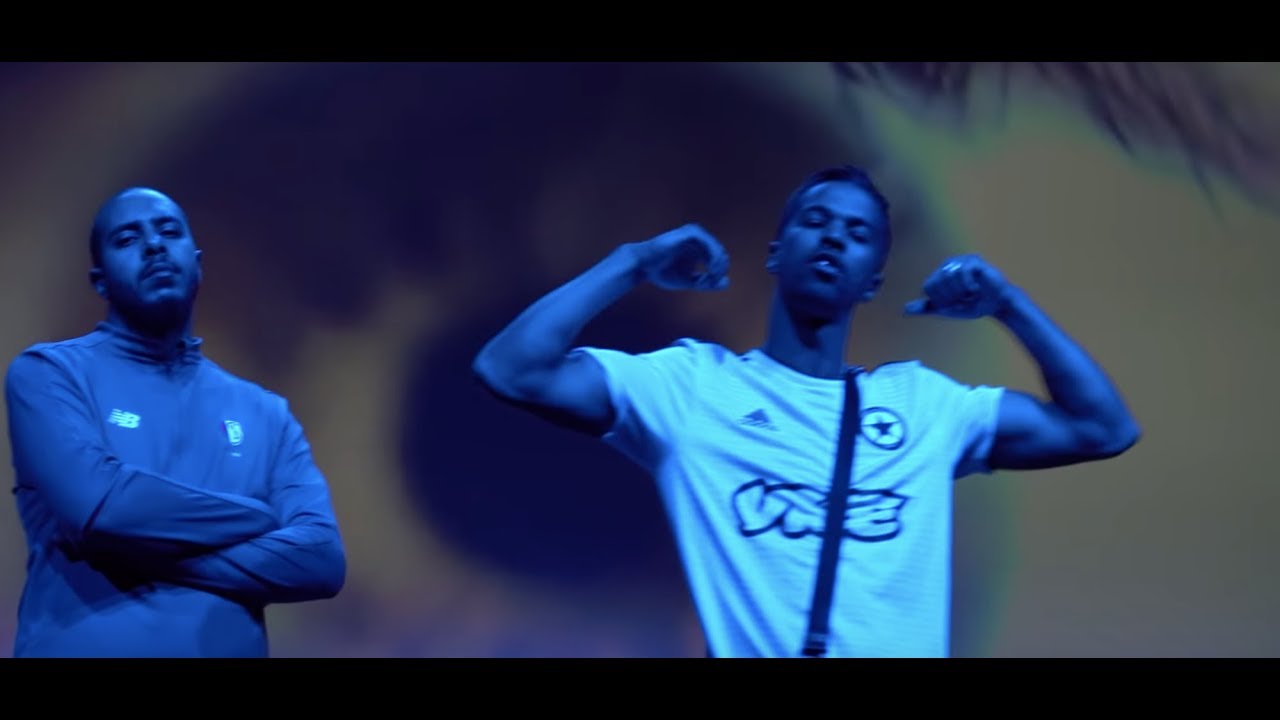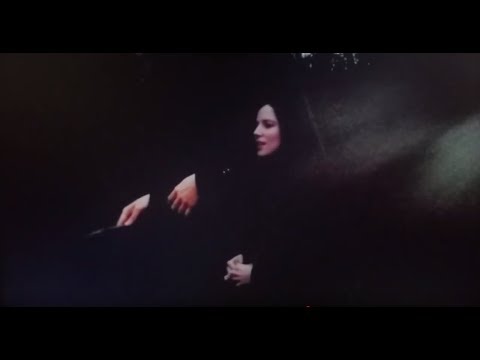The latest album from hardcore math/jazz rockers Ni, Pantophobie, is a catalogue of different and unusual phobias. Pantophobia is a fear of everything, but we get subsections of terror that including ‘Athazagoraphobie’ (the fear of being forgotten or ignored), ‘Stasophobie’ (the fear of walking or standing) and ‘Lachanophobie’ (fear of vegetables). I’ve concluded the latest Rockfort mix with ‘Leucosélophobie’, which is particularly relatable for me in the context of writing this column: fear of the blank page.
More specifically the fear of not being able to do justice to the art. And the fear of not fitting in enough of the extraordinary music I’ve come across over the last two months.
Fortunately, the mix allows me to point you to releases that haven’t made the cut – not because they’re inferior, and often because I haven’t yet worked out what I want to say about them apart from LISTEN TO THIS.
So as well as the below, you should also dig into the Rêves Perdus album from experimental violinist Agathe Max ; Cocoon’s You’ve Arrived, drawn from a score for Dreyer’s The Passion of Joan of Arc and an exhibition, Moments by Ludovic Chemarin; the dream RnB of Ta-Ra’s Rare 1, the exotico-industrial excellence of UVB 76s SĀN and the offbeat adaptations of Galen E Hershey’s unpublished poems on Gilles Poizat’s ‘Horse In The House’. I’ll assume that, if nothing else, you don’t suffer from melophobia.
TripleGo – Machakil (Twareg)
The build-up to the release of Machakil, following 2017’s 2020, has perhaps not been the most drawn-out in the history of popular music but the delay – apparently down to wrangles between the duo and their label – was still enough to prompt the release of a stop-gap mix tape called #En Attendant Machakil [while you’re waiting for Machakil]. It’s finally out on their own Twareg imprint and it has been absolutely worth the wait.
TripleGo, from Montreuil in Paris’s eastern suburbs, are rapper Sanguee and producer Momo Spazz and over several releases they’ve been crafting a hugely distinctive sound from a deliberately tight palette. Machakil retains the same core elements of clipped, trap-inspired beats, Sanguee’s brain-massaging autotuned vocals and synth lines that bring to mind the diffuse melancholy of Michael Mann’s city nights. North African influences also run through it like a warm breeze, in the minor scale harmonies and the shuffling percussion that carries opener ‘Tu l’auras’, the gorgeous ‘Interlude’ and ‘Les Cheveux d’Assala’.
TripleGo seem to exist in a permanent nocturnal other-place, a Paris that not too many visitors would recognise. In this fluid environment languages and cultures flow into each other; Panama, Arabic and Spanish mingle with French; amorous or aggressive impulses crystallise briefly then dissolve. With a few listens you start to pick up on the variety within the rhythms – TripleGo deliver their own takes on R&B, dancehall and even UK bass on ‘No conozco’ – and the constant tweaking of Sanguee’s interaction with autotune. From the fluttery to menacing, via some kind of throaty, grainy sweet spot in between, it’s a sound that will take control of your nervous system by stealth.
Léonore Boulanger – Practice Chanter (Le Saule)
On their fourth album of deconstructed chanson, Boulanger and Jean-Daniel Botta, assisted by drummer and percussionist Laurent Seriès, have taken a major step up. If previous album Feigen Feigen was, by the band’s own admission, something of a puzzle then Practice Chanter could be likened to a mosaic, due to the sheer quantity and variety of sonic fragments that is somehow made to cohere in these 16 wild, wonderful tracks. But even that doesn’t quite do justice to a 3D vision that can maintain so many disparate elements in uneasy equilibrium – I suspect the cubist female portrait on the sleeve is an attempt to convey a similar idea.
The title appears to refer to singing lessons – or perhaps the practice of singing itself – and the play around the rhythms of different words and languages suggests a series of unconventional vocal exercises. Practice Chanter is awash with voices, some evidently Boulanger with her distinctively wispy, childlike tone, while with others its hard to say – samples, field recordings? Who is repeatedly croaking ‘la la euh-la’ on ‘Rouler sa tête la montagne’ as though their throat is pinched from dehydration? Is that a snippet of someone singing opera on ‘La transe de son prochain’?
‘Bruyant qu’brillant’ is typical in that the rapid rhythm, and even a kind of melody, formed from the words “bruyant” and “brillant” gives the song its impetus. Around that bring in accordion, clomping mechanical percussion, what could be a child’s toy, trumpet samples, keyboards and unidentifiable creaking, fast-cutting between tiny events so that the song is constantly alive and unpredictable. ‘Bruyant qu’brillant’ also feels like it belongs to a longer phrase like “aussi bruyant que brillant” – “as noisy as it is brilliant”. That sums up Practice Chanter beautifully.
Pixvae – Cali (Buda Musique/Bongo Joe)
Bobun Fever – Bobun Fever (Tricollection)
I’ve put these two groups together in this column as, in their own rather distinct ways, they’ve emerged from the open-ended approach to jazz (crossing over with math rock, noise and ‘world’ influences) that can be found across numerous French collectives. Pixvae have emerged from Grolektif, also responsible for the Périscope venue in Lyon, with a hugely convincing fusion of hardcore/math rock – saxophonist Romain Dugelay, guitarist Damien Cluzel and drummer Léo Dumont have an album out shortly as Kouma that sits more firmly in this camp – and currulao, a dance-oriented folk music found in the southern, Pacific region of Colombia and parts of Ecuador.
As well as Margaux Delatour on vocals and guasá, a Colombian percussive rattle, the full band features Colombian members Alexandra Charry, Israël Quinonez and Juan Carlos Arrechea providing vocals and percussion, plus there’s a further cast of players from the town of Cali, where the album was recorded. It features traditional songs like ‘Ronca Canalete’ and ‘Camino Largo’, a contribution from marimba player Hugo Candelario and compositions from Charry. Building on their self-titled debut, they’ve returned with a fuller sound, Dugelay’s sax and the stabbing hardcore riffs gelling almost miraculously with the vigorous currulao rhythms and providing a launchpad for the joyous call-and-response vocals. Cali is consistently delightful.
Bobun Fever – members of Tricollectif, home to key names in the French jazz scene like Roberto Negro, the Ceccaldi brothers and BF’s Quentin Biardeau – have a similar mission to make people dance, their stage show pitched somewhere between bacchanal and new age ceremony; singer Anouck frequently descends from the stage to dance with audience members and bless them with glitter. On debut EP Grand Passion, ‘Super Lune’ seemed an attempt to distil the essence of an ecstatic clubbing experience as it slipped from afrobeat to four on the floor: “si tu peux voir les étoiles c’est que les étoiles sont déjà en toi” [if you can see the stars it’s because the stars are already within you]. This second, six-track release is better recorded than Grand Passion and more eclectic, gobbling up and reconfiguring hoover techno on ‘Happy Bannana’, Latin American, batucada-style beats on ‘Vimala’ and balearic vibes on ‘Love Is Astral’. There’s a certain knowing humour with Bobun Fever but they’re never merely arch. Ultimately, it’s their commitment to communal joy that wins through.
Mohamed Lamouri & Groupe Mostla – Underground Raï Love (Almost)
Lamouri isn’t the only recording artist in recent times whose origin story features a stint busking in the Paris Métro (check the CVs of both Benjamin Clementine and French star Zaz) but neither can match Mohamed Lamouri, legend of Ligne 2. ‘Line 2’ is the blue one that runs across the north of Paris, through Pigalle and predominantly African quarter Barbès before veering south towards Père Lachaise cemetery in the east, and Algerian immigrant Lamouri has spent over ten years performing raï songs with his synthesiser between the Père Lachaise and Courcelles stops (it’s more common in Paris, and particularly on Ligne 2, than in London to have buskers actually playing on the trains), becoming an institution in the process.
Having fielded several offers he finally opted to work with Benjamin Caschera of the La Souterraine collective, first on a solo self-titled release that captures him pretty much as he sounds on the Metro and then with a band including La Souterraine mainstays like drummer Baron Rétif, guitarist Mocke and Aquaserge’s Benjamin Glibert.
La Souterraine also means ‘the underground’ so there’s a pleasing (and un-risqué) double entendre in the title, but there’s more to Underground Raï Love than conceptual cuteness. Lamouri’s rasping, plaintive vocals are backed by playing that’s both sensitive and slightly offbeat, like the tumble of pitch-shifted guitar that ushers in ‘Loukan Masebtek Mantfarqouche’ or the warped, parping keyboards on ‘Khellitni Whedi Medrar’, while funk, reggae and hip hop are all deftly incorporated.
Sônge – Flavourite CÂLÂ (Parlophone France)
Musicians declaring the impact of synaesthesia on their work is something of a cliché but at least in Sônge’s case the bright, luxuriously textured pop of Flavourite CÂLÂ does bear out the claims. Real name Océane, from Quimper in Brittany, Sônge previously only had one EP to her name but Flavourite CÂLÂ, largely self-produced with assistance from Bromance’s Myd, is brimming with musical and conceptual confidence. It’s impossible to pigeonhole her as R&B when she can shift with ease from the spritely, J Pop-like ‘Magic Hairdo’ – on which she suggests that the secrets of afro hair are among the universe’s great mysteries – to ‘Thanatonautes’, which isn’t a million miles from Gang Gang Dance at their most accessible, even dropping a contemporary Xmas carol in the form of ‘Carol Of The Bells’.
She also brings in French rappers Ash Kidd and KillASon, as well as Pauli Lovejoy, to complete an international cast list. Her regular switching between French and English is an indicator that, post-Christine, French singers can find ways to embrace English without surrendering their native language.
F/Lor – Edges (Ouvré)
F/Lor – Sous Le Ciel (Ouvré)
J.Lorichon & Q.Rollet – Elephantasmes /Et Les Fantasmes (Ouvré)
Don Nino – Rhapsody For The Dead Butterflies (Prohibited)
Branching out from NLF3 and their label Prohibited, Fabrice Laureau has set up Ouvré, which specialises in limited, hand-assembled releases (ouvré = handcrafted). It’s also a home for more esoteric essays, such as the releases under the F/Lor moniker. After the more structured ‘Blackflakes’ from 2013, Edges is just under 45 minutes of one-take analogue jam – spacious, contemplative but featured enough jagged edges and rogue pulses. Sous Le Ciel meanwhile is a lovely collection of field recording splices.
The utterly charming release from Jerôme Lorichon, on trumpet and Buchla, and Quentin Rollet – sax, Monotron and ‘effects’ – features two suites of curious scenes or sketches that run into each other, a blend of dusty, shag-pile jazz and Radiophonic Workshop (or, more appropriately, GRM) electronics.
There’s a forthcoming release on Ouvré from Laureau’s brother, Nicolas, who records as Don Nino (or Don Niño), as well as a full album on Prohibited – another family affair since it was recorded with Fabrice. The subdued Rhapsody For The Dead Butterflies contrasts with NLF3’s more pronounced grooves, and its songs are initially brittle sounding. But get in closer and there’s a wiry intensity to the low-key gothic ‘Another Sleepness Night’ and the concussed lope of ‘Shining Horse’, and a bruised pop sensibility that rings out in ‘No Yin No Jing’.
Le SuperHomard – Meadow Lane Park (Elefant)
Taking their name from a club in 60s crime caper Ne nous fâchons pas’ – you could translate it as the Giant or Mega Lobster – Le SuperHomard are unashamed adherents of an international school of baroque sophisti-pop that includes everyone from compatriots Tahiti 80 and Bertrand Burgalat, Anglo-French exponents like the recently revived Stereolab, High Llamas and the Japanese Shibuya-kei acts like Cornelius or Pizzicato Five. That list could also include acts on Elefant, the Spanish indie releasing their debut album.
Behind the crustaceous appellation is Christophe Vaillant, previously of Pony Club, and a cast including singer Julie Big, whose voice is characterful but also discreet enough to be part of the décor. There’s no place for messy, direct self-expression here – Meadow Lane Park is a bright, retro-futurist environment established in honour of the moments when pop modernism has coincided with harmonic sophistication. Fortunately, Meadow Lane Park also retains the psychedelic sense of the weird hiding in plain sight, so although all the instrumental parts on ‘Springtime’, the pulsing ‘Paper Girl’ and the title track come through clean and clear, it feels as though the colours could start running and mingling at any moment. Or as though someone left the cake out in the rain.
Kap Bambino – Dust, Fierce, Forever (Because)
Bordeaux duo Kap Bambino haven’t released an album since 2012’s Devotion, in fact it was reasonable to assume that they’d disbanded for good. Their first album had been released ten years earlier and set the template for the bit-crushed electroclash sound that another boy-girl duo, Crystal Castles would take global. Judging by Dust, Fierce, Forever, it would seem that the passing of time and musical fashion has had little impact on the pair’s vision. It’s just another day at the office, albeit an office full of strobing lights, alarms going off and computers bursting into flames.
From the off, Dust, Fierce, Forever is exactly the grainy purée of electro pop, industrial, techno and Eurodance you’d expect, with a few detours like the rather gorgeous, chiming ‘Under The Ages’. Literally sensational, its sweet and sour fizz is primed to overload your pleasure centres, leaving you both energised and exhausted. A little addicted too.
I guess that’s my way of saying welcome back.
Anthony Laguerre – Myotis (Van D’Œuvre)
Laguerre made an appearance in the column last year as a member of drum trio Piles and the thunderingly good Club Cactus, but on Myotis he’s making all of the noise himself. Utilising only drums, percussion and harmonica, Laguerre plays with recording techniques and feedback to extend his textural range and give each of these soberly named tracks (‘I’ – ‘VII’) a distinctive character. ‘I’ is a mood-setter, a slow and bluesy march up the hill to where the action’s happening. From there things get really interesting: ‘II’ is almost entirely kick and a drum roll that rolls around itself and into a blur. Your ears are dodging metal hooks on ‘III’ and get a full pummelling on ‘V’ and ‘VI’, before ‘VII’ rounds things up with a 17-minute build. Sounds like an ordeal, but the invention keeps you locked in.
Quietus Mix 16
Bobun Fever – ‘Vimala’ (Tricollection)
Pixvae – ‘Ronca Canalete’ (Buda Musique/Bongo Joe)
Léonore Boulanger – ‘Poème Poème Teltruc Sa Puissance’ (Le Saule)
Sônge – ‘Thanatonautes’ (Parlophone France)
TripleGo – ‘Habeeba’ (Twareg)
Mohamed Lamouri & Groupe Mostla – ‘Rire Anti’ (Almost)
Ta-Ra – ‘Exit’ feat. Vroskiii (Misterlgeo/Because)
Kap Bambino – ‘Forever’ (Because)
Le SuperHomard – ‘Springtime’ (Elefant)
J.Lorichon & Q.Rollet – ‘Et Les Fantasmes’ Pts I & II (Ouvré),br>Gilles Poizat – ‘Jewelry’ (Carton)
Agathe Max – ‘Dans Les Flots (Modern Aviation)
UVB 76 – ‘Onna’ (Teenage Menopause)
Cocoon – ‘Romantic Distorsion’ (Optical Sound)
Anthony Laguerre – ‘II’ (Van D’Œuvre)
F/Lor – ‘Fragments II – excerpt’ (Ouvré)
Ni – ‘Leucosélophobie’ (Dur Et Doux)








